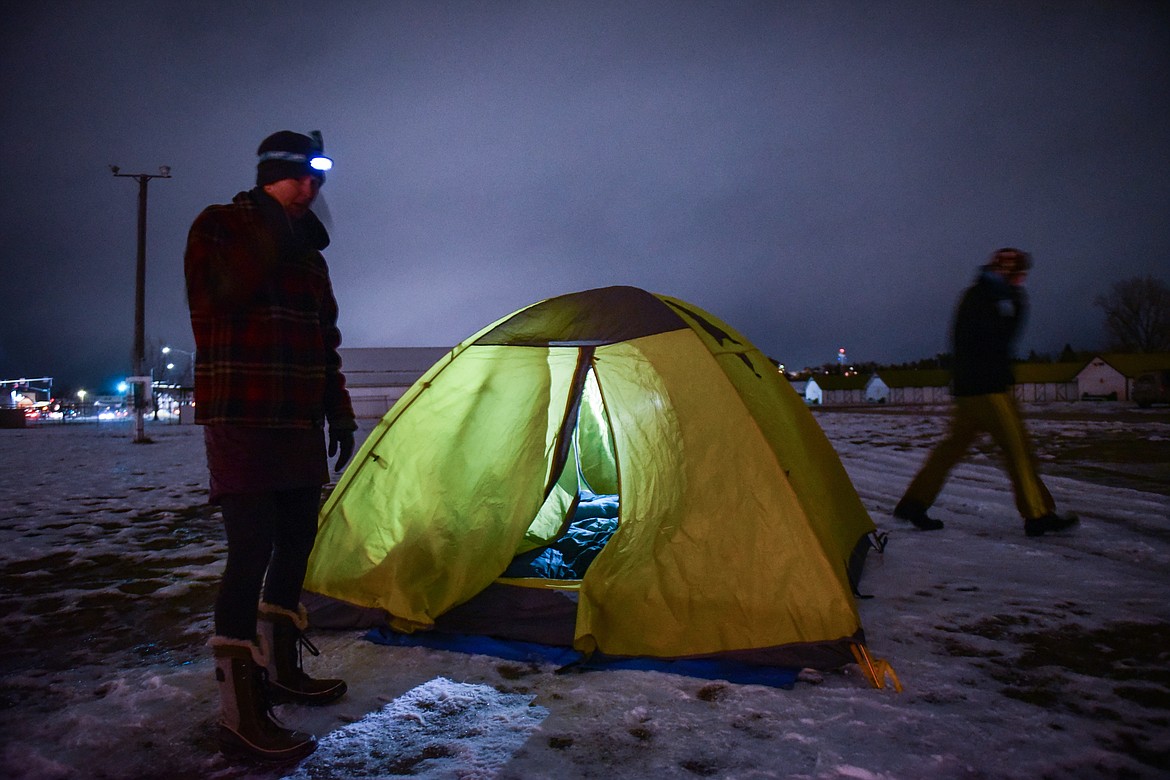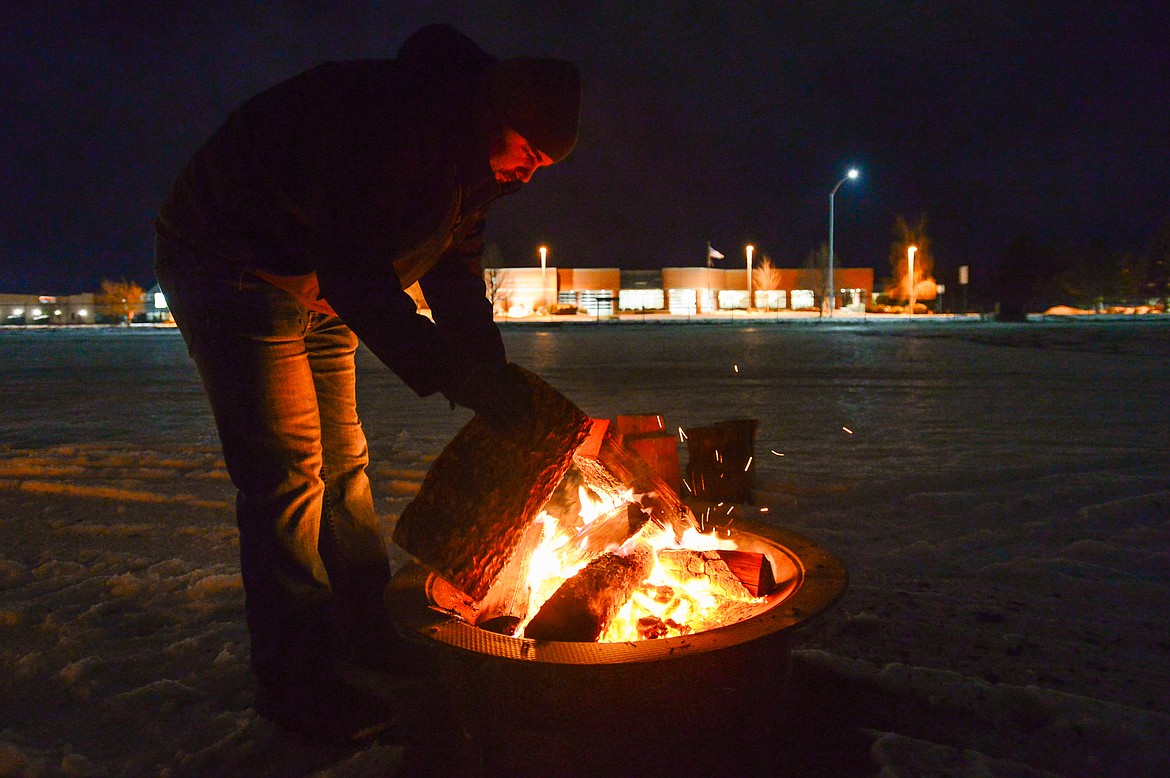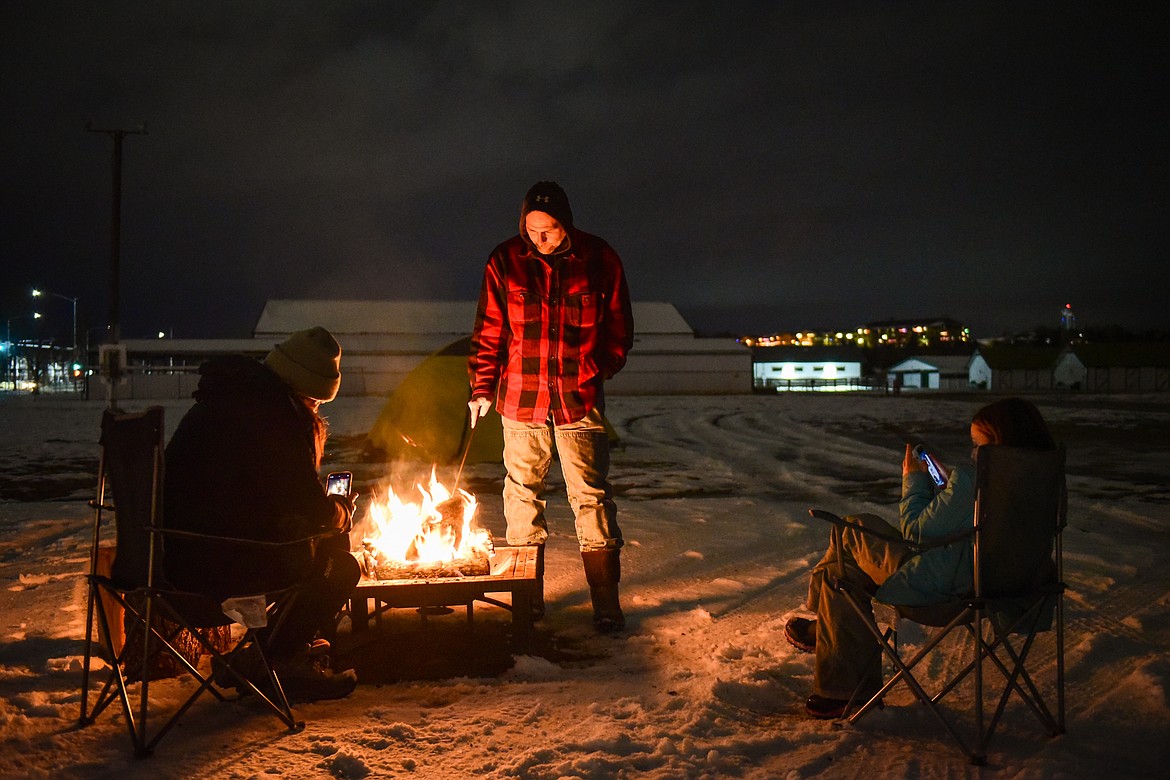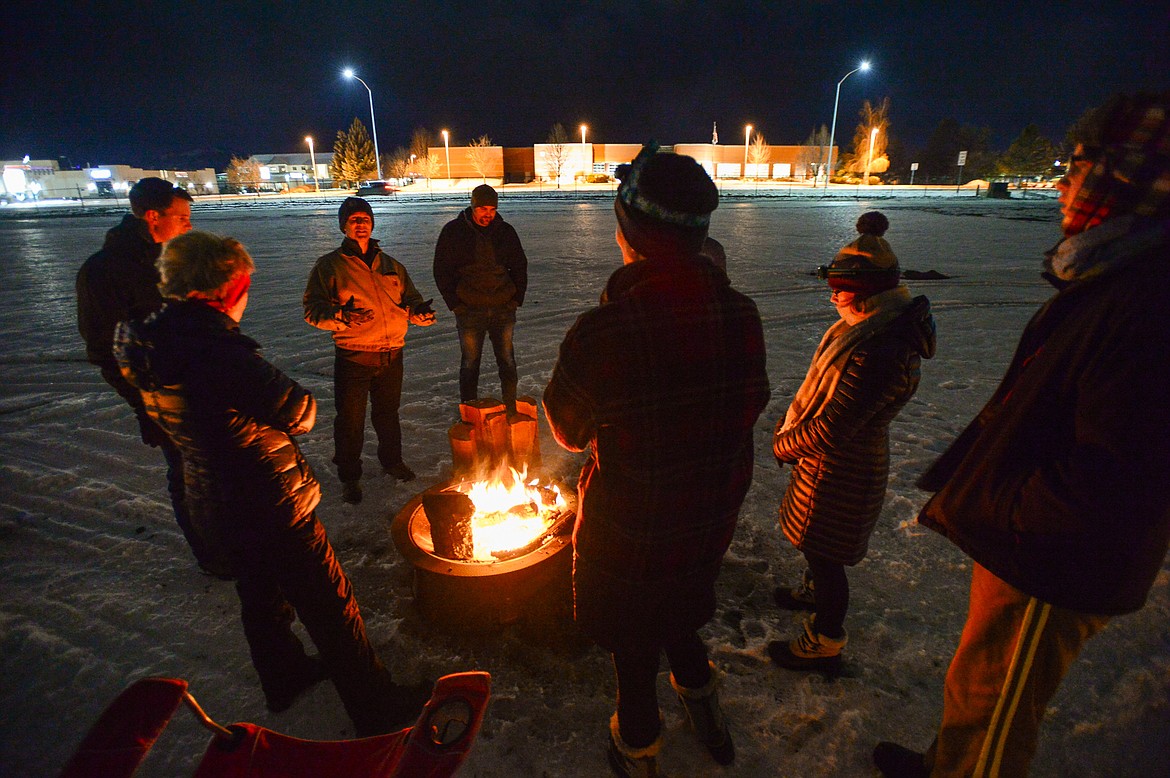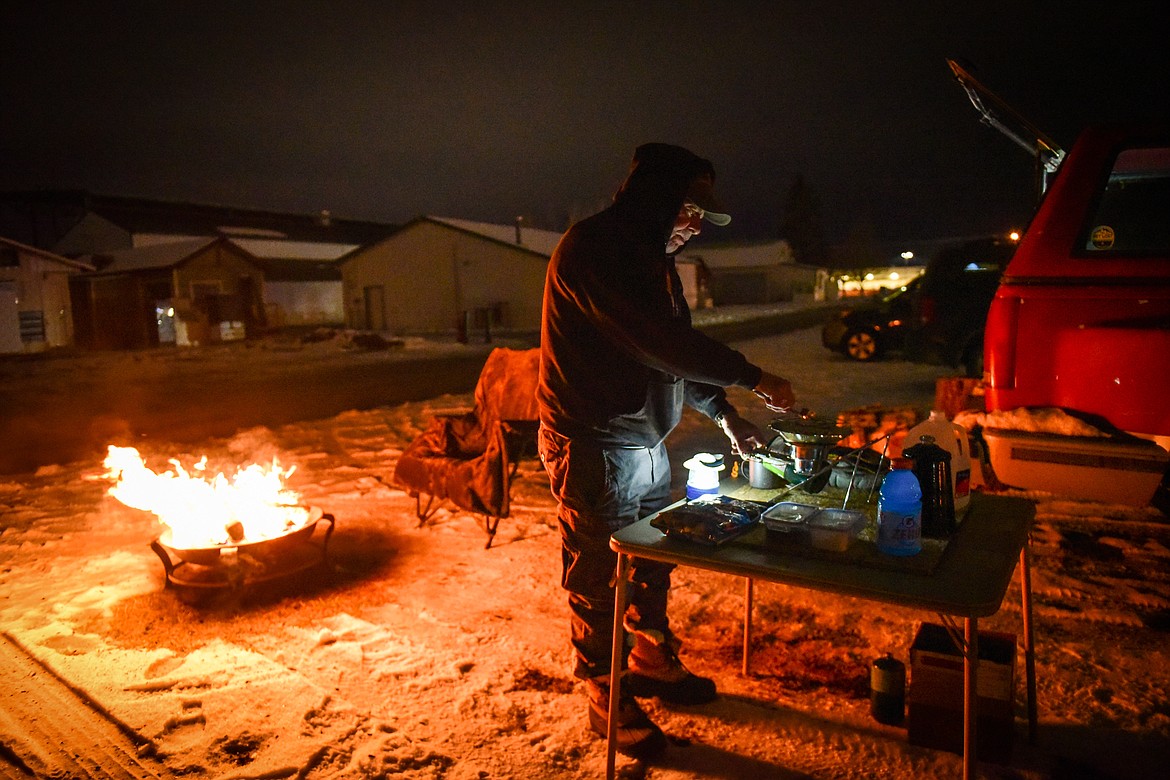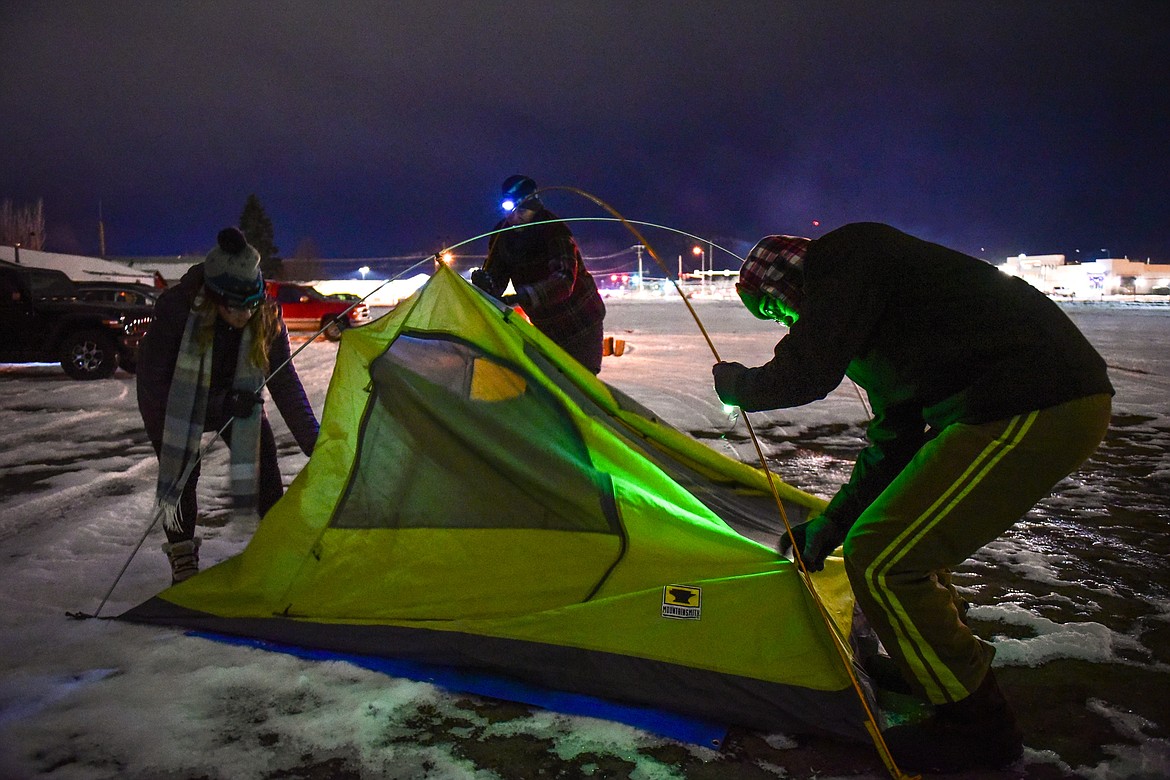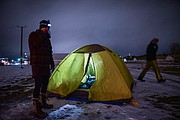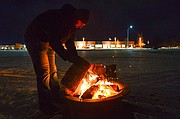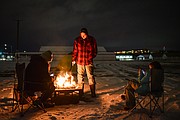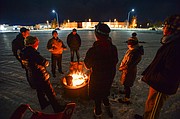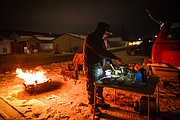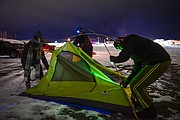Town hall addresses causes, solutions for homelessness
There was a connecting theme at a town hall meeting Wednesday in Kalispell to address homelessness in the Flathead Valley: prevent it before more community members fall into its trap.
“I do think that homelessness is a solvable problem, and one of the biggest solutions that we have is prevention,” Kalispell City Council member Kyle Waterman said during opening remarks for the event.
During the meeting, nonprofit leaders outlined resources ranging from haircuts to housing assistance for people experiencing homelessness in the Flathead Valley.
Ray of Hope, the Flathead Warming Center, Abbie Shelter, Samaritan House, North West Montana Veterans Food Pantry and Community Action Partnership of Northwest Montana all gave presentations about the services they offer to people facing various forms of housing instability.
According to the Montana Homeless Point-In-Time Survey provided annually by the Montana Continuum of Care Coalition, Kalispell had 207 homeless individuals in 2019, the most recently available year for the data.
In 2018, the survey reported 187 homeless people and 191 in 2017.
The survey is conducted in January, and Chris Krager with The Samaritan House said most local service providers believe that number could double or triple if the survey were conducted in the summer.
Krager said Kalispell routinely ranks as the city with the second or third highest homeless population in all of Montana, usually behind Billings and Missoula.
On Wednesday, the six panelists highlighted multiple facets of a preventative approach to solving homelessness in the local community.
One issue that was addressed by almost every panelist was the need for more affordable housing.
“To me, the number one goal that we need to work on is affordable housing,” said Wayne Appl.
In most estimations, housing affordability is a problem that has only gotten worse in recent years. The Covid-19 pandemic particularly exacerbated the affordable housing stock throughout Northwest Montana.
“We’re seeing the gap of moderately low income to low income individuals now become housing unstable or are experiencing housing instability,” said Sean O’Neill with Community Action Partnership of Northwest Montana. “It’s gone from horrible to whatever’s worse than that.”
Panelists including O’Neill urged compassion and creativity to address the lack of affordable housing. O’Neill suggested landlords could charge less for rentals to make housing more accessible.
He and his fellow presenters also pointed to the inaccessibility of mental-health care as a major contributor to homelessness.
“This is a gap in our community,” said Hillary Shaw, executive director of The Abbie Shelter. “…There is a shortage of care, there is a shortage of resources, there is a shortage of funding, and so you have many folks whose mental illnesses are going untreated, unaddressed and it does serve as a tremendous barrier to them finding stable housing.”
Shaw, along with other agency representatives, pointed at the lack of mental-health care providers, the expense in accessing mental-health care and the time it takes many clients to get connected to a provider as some of the many issues influencing homelessness among the population of people with mental illnesses.
Shaw also drew attention to the role domestic violence plays in causing homelessness. She said domestic violence is the number-one cause of homelessness for women and the number-two cause of homelessness overall.
Tonya Horn, executive director of the Flathead Warming Center, stressed the necessity of improving transportation options to alleviate homelessness, especially to help people living outside Kalispell who are experiencing housing instability.
Horn also urged the public to work on destigmatizing homelessness and poverty in order to create better outcomes for struggling community members.
Shaw from The Abbie Shelter agreed. When people experiencing homelessness are stigmatized for their lack of housing, Shaw said, “that perspective is a barrier to providing services.
“There actually needs to be a really strong shift in how we judge people for what has happened to them,” Shaw said.
Reporter Bret Anne Serbin may be reached at 406-758-4459 or bserbin@dailyinterlake.com.



